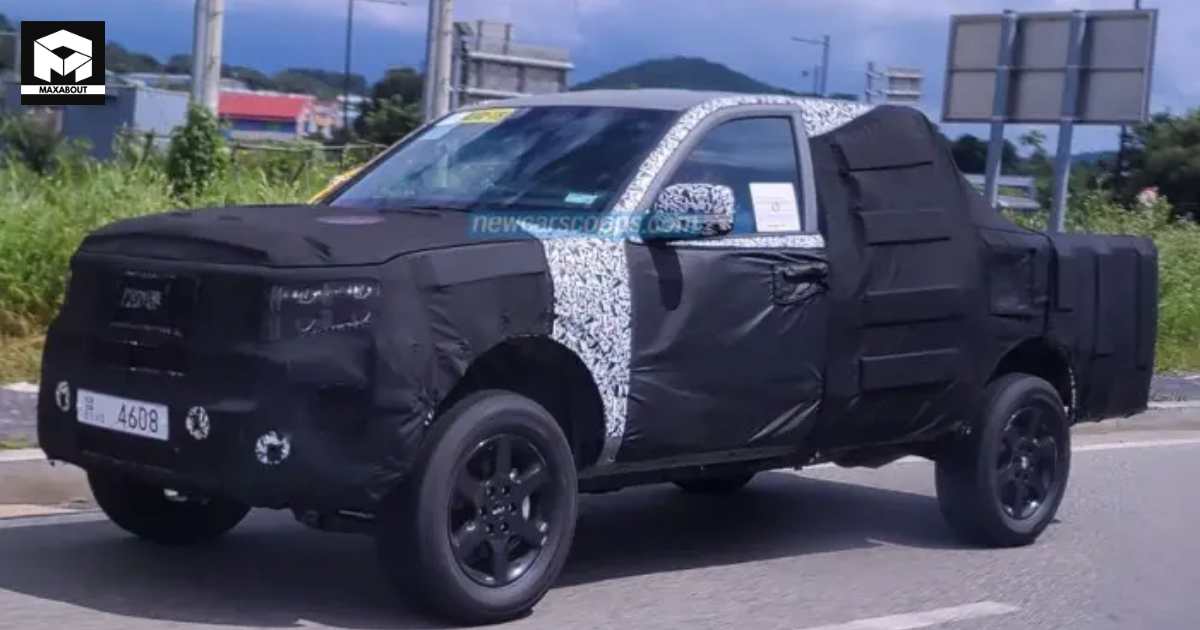Kia is poised to make a significant impact in the automotive landscape with the impending launch of its Tasman pickup truck. This forthcoming model is strategically positioned to emerge as a formidable global contender, poised to challenge established players such as the Toyota Hilux and Ford Ranger. The recent official confirmation of the Tasman’s development signifies Kia’s deliberate move into key automotive markets, encompassing North America, Australasia, and various ASEAN countries. The aim is clear – to carve out a substantial presence in the fiercely competitive mid-size pickup segment.
Underpinnings and Origins: A Sturdy Foundation
An in-depth exploration of Kia’s diverse vehicle portfolio reveals that the Tasman pickup shares its robust underpinnings with the Mohave SUV, a model that has gained traction in the South Korean market. Notably, the Mohave boasts a rugged ladder frame chassis, a structural foundation known for its durability and off-road capabilities. This chassis choice is strategic, positioning the Tasman to offer a comparable load-bearing capacity, putting it in direct competition with mid-size rivals like the Toyota Hilux and Ford Ranger. The Mohave, currently in its second generation, is equipped with a 3.0L V6 diesel engine in South Korea, further emphasizing its rugged and capable nature.

Powertrain Options: Diesel and Electric Prowess
Insights from Kia Australia shed light on the powertrain options for the Tasman pickup. The diesel variant is anticipated to feature the 2.2L 4-cylinder engine, a powerplant expected to make its debut in the upcoming Kia Carnival facelift. Simultaneously, Kia is actively exploring the development of an electric version of the Tasman, leveraging the E-GMP modular monocoque platform. This dual powertrain strategy underscores Kia’s commitment to not only cater to traditional preferences but also align with the evolving landscape of electric mobility.
Spy Shots and Design Features: Unveiling the Robust Aesthetic
Recent spy shots capturing the Tasman pickup undergoing rigorous testing in South Korea provide a glimpse into its design philosophy. Fully camouflaged during testing, the vehicle exhibits distinctive design elements, including chunky wheel arches, a traditional boxy silhouette, and large, muscular alloy wheels wrapped in tall-profile tires. Additional features include a convenient built-in step on the rear bed, massive Outside Rear View Mirrors (ORVMs), roof rails, and a shark-fin antenna. Collectively, these design elements contribute to the Tasman’s rugged and utilitarian aesthetic, reinforcing its capability and versatility.

Market Prospects and Regional Launch: Tailoring to Diverse Markets
While the Tasman pickup may not find its way into the Indian market, indications strongly suggest that the internal combustion engine version, equipped with a ladder frame chassis, is poised for success in markets such as Australasia, ASEAN nations, and North America. The electric variant, tapping into the growing interest in electric mobility, holds significant promise for markets in Europe and North America. Concurrently, the Kia Clavis model emerges as a more viable contender for an Indian launch, aligning with Kia’s overarching strategy to address diverse regional preferences and dynamic market demands. As Kia prepares to unveil its Tasman pickup, the anticipation builds for a new entrant set to redefine the global mid-size pickup landscape.
2024-01-31 19:26:22
